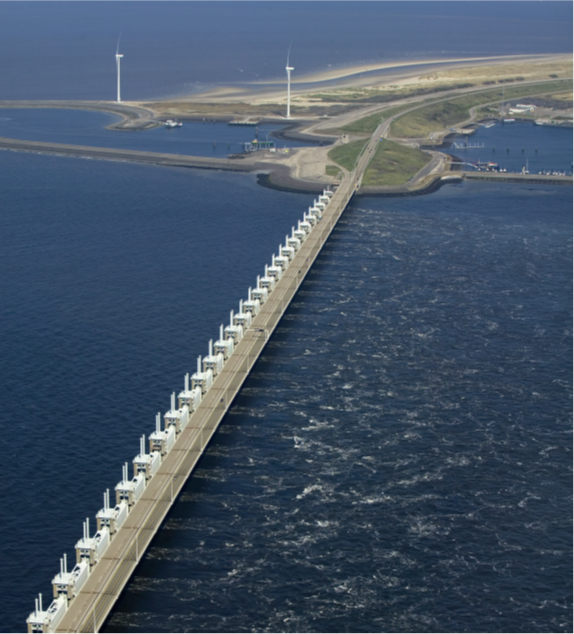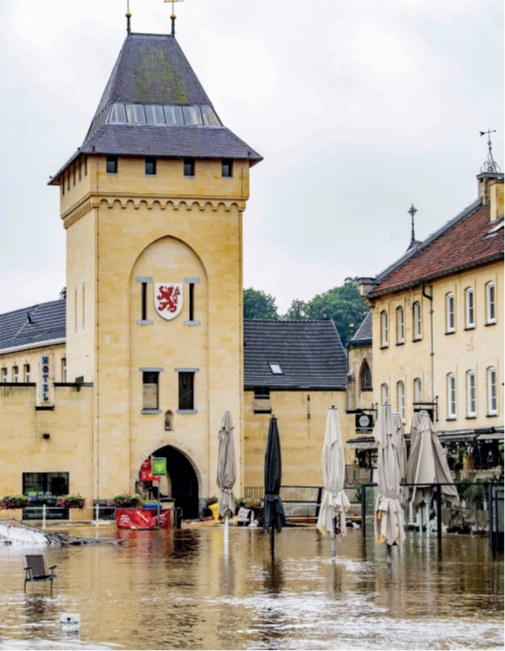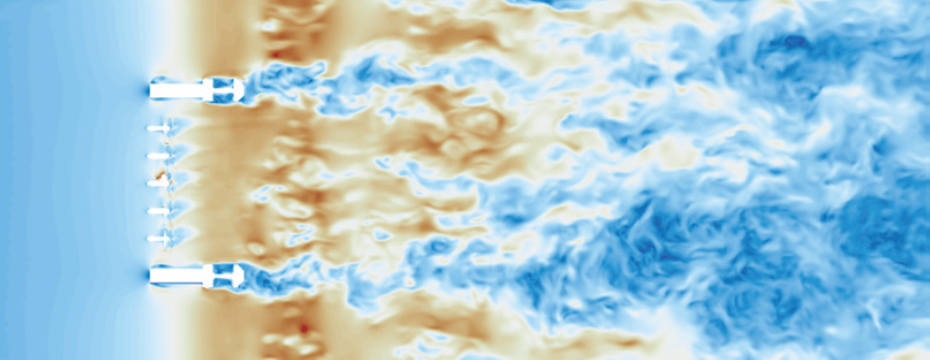Annemieke Nijhof
“Water management is of essential importance for developing and maintaining Dutch infrastructure in the Delta area. Fundamental understanding of fluid flows in combination with waves & tides, river (beddings) and draining systems are some of Deltares key assets to develop new sustainable infrastructure solutions. As illustrated by the flooding in Valkenburg, Limburg in 2021, fluid flows from heavy local rainfall in combination with insufficient local draining capacity can result in rapidly escalating situations.
At Deltares we are combining numerical fluid flow modelling with laboratory and field measurements to predict the impact of fluid flows. Further enhancement and investment in Fluid Flow science & technology in the Netherlands is of vital importance to face the environmental challenges of the future.”

Annemieke Nijhof
CEO, Deltares
Water management
Fluid mechanics at Deltares.
We have relied on fluid dynamics since the great flooding of 1953. The disaster demonstrated the importance of protecting the Netherlands adequately against flooding. Stricter safety standards were adopted for flood barriers based on fluid dynamic modeling. The barriers were raised to the minimum height (the so-called Delta height as prescribed in the Delta Act) required to protect the Netherlands against storm surges.
Expertise in fluid mechanics is key to ensuring life in the Dutch Delta is safe and sustainable, both now and in the future. Understanding flow behaviour has made it possible to build many different water structures. The Delta Works are a prime example, as is the recently completed (2022) IJmuiden Sea Lock, which maintains a complex balance between fresh and salt water. This specialised knowledge is also important for the design of hydraulic structures that contribute to strengthening the ecosystem, also known as nature-inclusive design. Often, fluid mechanics can help to find an optimal solution between ecological impact, construction, and water quality aspects.
Deltares has nearly 100 years’ experience in designing innovative solutions to societal challenges. Key to this is their expertise in water and subsurface. The knowledge of fluid mechanics forms part of this expertise. In the past, they mainly used large physical scale models to simulate flows. Today, they use numerical modelling in addition to physical scale models. Using these models of complex flows, the experts provide insight into the effects of flows on the environment. From global flood forecasts, (sea)bed morphodynamics, the prediction of (sea)bed changes, to scour around offshore wind foundations.
A good understanding of flows is also essential to finding solutions for problems resulting from the salinisation of groundwater, caused by climate change and sea level rise. New measurement techniques and simulations are needed to minimise saltwater intrusion at dams, locks, and storm surge barriers, and to optimise the design. This requires well-trained fluid mechanicists. Significant challenges also remain in understanding fluid mechanics in (tidal influenced) harbours. Sediment balance and deformations in the riverbed are important for navigation and vessel safety, and for optimising dredging operations in a nature inclusive way whilst restoring the balance.
Technological developments - such as the robotisation of (optical) physical measurements, free surface field measurement methods, autonomous vessels for surveying, and the continuous development and validation of numerical models of free surface flows around structures - are part of Deltares’ ‘future of flow’.
For further information: www.deltares.nl



